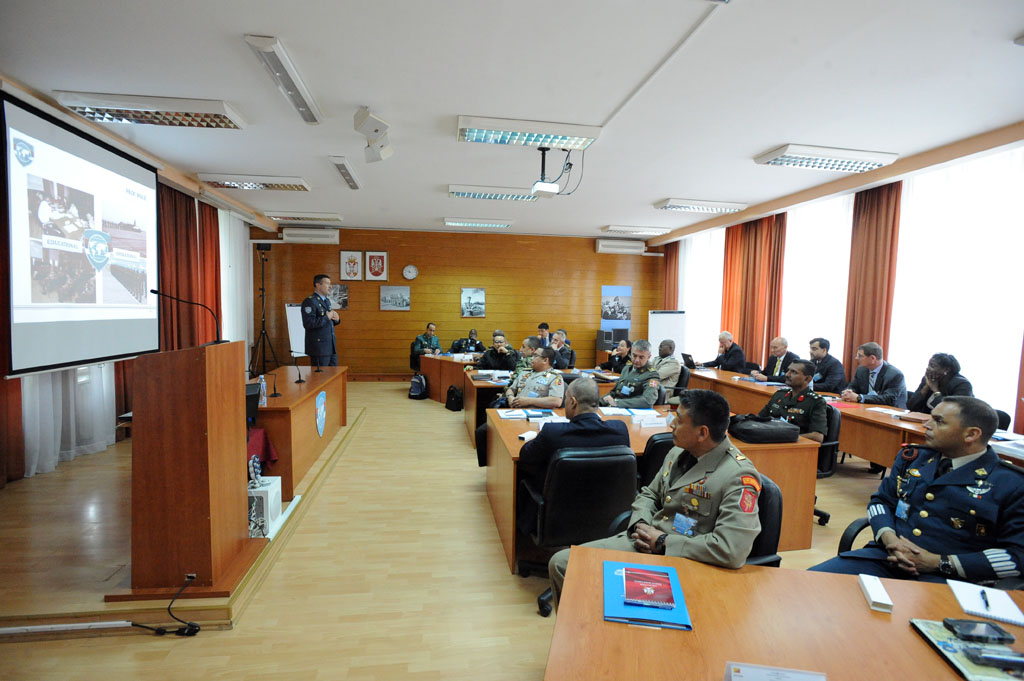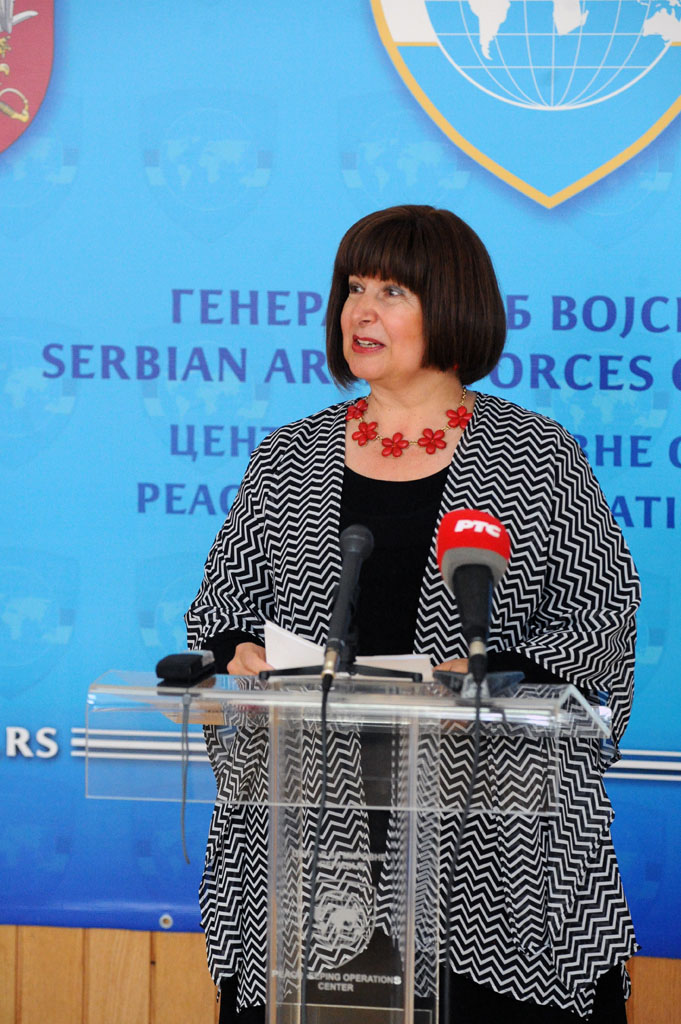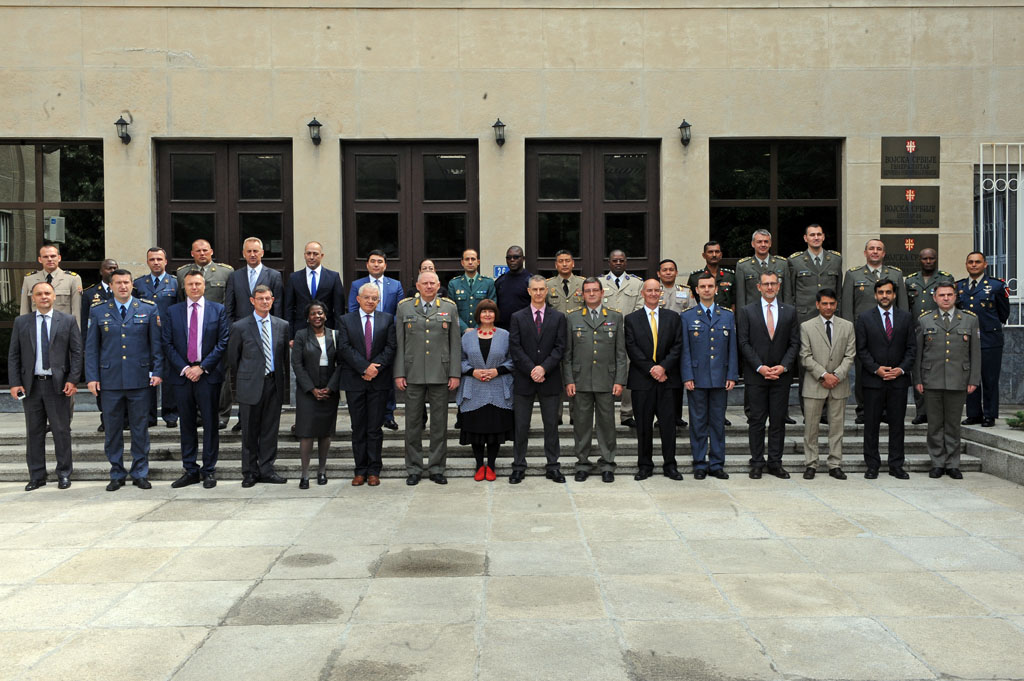- About MoD
Minister and Associates
- Minister
- State Secretary
- Assistant Ministers
- Secretary of the Ministry of Defence
Sectors
- Defence Policy Sector
- Human Resources Sector
- Material Resources Sector
- Budget and Finanance Sector
- Sector for Infrastructure and Hospitality Services
- SAF
- Documents
- Services
- Sport
- Archive
- Contacts
16.05.2016.
Course for national planners at the Peacekeeping Operations Centre
 The Peacekeeping Operations Centre has started today the first pilot course of the United Nations for national planners, intended for training persons at the national level dealing with planning and maintenance of peacekeeping operations using the leading UN documents.
The Peacekeeping Operations Centre has started today the first pilot course of the United Nations for national planners, intended for training persons at the national level dealing with planning and maintenance of peacekeeping operations using the leading UN documents.A ten-day course, involving 22 participants from 17 countries, was opened by Simona Miculescu, Head of the United Nations Office in Belgrade, who noted that it should give participants the knowledge and skills necessary for planning the participation in the peacekeeping operations.
- We appreciate the contribution of the Government and the Serbian Armed Forces which have intensified the training activities and sending personnel to the international missions, for which this meeting is a good example. Serbia, although relatively new participant in these activities, is very successful and we appreciate your obvious contribution to international efforts to maintain world peace –Simona Miculescu said.
Welcoming the participants, Brigadier General Slobodan Joksimovic, Head of the Strategic Planning Department of the Defence Policy
 Sector, said that for the Serbian Armed Forces this course is a turning point.
Sector, said that for the Serbian Armed Forces this course is a turning point.- Last year our first UN course was certified, and in the next year we hope to verify another two, which demonstrates our full commitment to the implementation of all the United Nations recommended training standards, General Joksimovic said and added that after this meeting, we will cease to be "young and small" Centre that is still looking for its place in the system.
The course participants were welcomed by the Chief of the United Nations Integrated Training Service, Mark Pedersen, and the opening was attended by the Deputy Commander of Joint Operations Command, Major General Slavoljub Janicijevic and Head of the Centre for Peacekeeping Operations Colonel MilivojePajovic.
 A ten-day course for representatives of the military and police forces with different experiences from Southeast Asia, Africa, Latin America and Europe represents a good opportunity for the implementation of new guidelines for engaging in international operations, which the United Nations set up last year at the so-called "Hypo Panel".
A ten-day course for representatives of the military and police forces with different experiences from Southeast Asia, Africa, Latin America and Europe represents a good opportunity for the implementation of new guidelines for engaging in international operations, which the United Nations set up last year at the so-called "Hypo Panel".The Peacekeeping Operations Centre has become globally visible and recognized as a credible partner of the UN, as proven by the trust given to it to organize a course at this level. Earlier this month, the Centre became a member of the European Association of Peacekeeping Training Centres (EAPTC), and by the end of the year it has been planned for it to join the international organization (IAPTC).
- About MoD
- Jurisdiction
- Organisation scheme
- Description of duties
- Minister and Associates
- Minister
- State Secretary
- Assistant Ministers
- Secretary of the Ministry of Defence
- Sectors
- Defence Policy Sector
- Human Resources Sector
- Material Resources Sector
- Budget and Finanance Sector
- Sector for Infrastructure and Hospitality Services
- Special Internal Units
- Office of the Minister of Defence
- Secretariat
- Military Attorney's Office
- Administrative Bodies within MoD
- Defence Inspectorate
- Military Intelligence Agency
- Military Security Agency
- Autonomous Departments
- Public Relations Department
- Military Healthcare Department
- Higher Education Institution
- Defence University
- Specific internal units
- Inspector General of the Services
- Internal Audit Section
- SAF
- Documents
- Services
- Sport
- Archive
- Contacts



